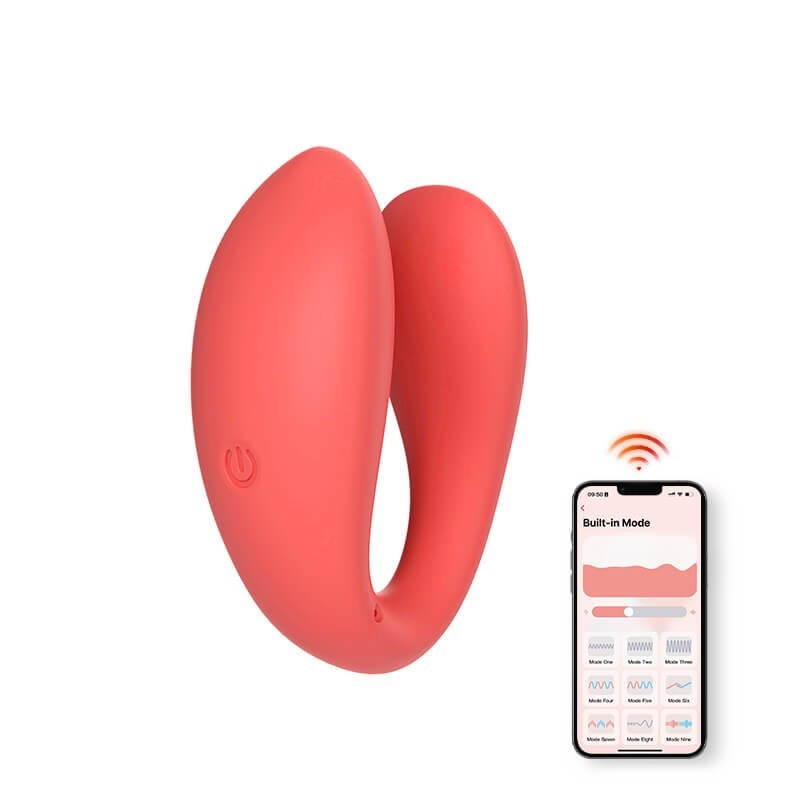A complete guide to hormones and how to balance them

Have you ever wondered why you suddenly became hungry an hour after eating? Or why your energy crashed in the afternoon for no reason? Or is your mood seemingly shifting to a dime? Welcome to the world of hormones – all of which are so relevant!

Hormones are the tiny chemical messenger of the body, which quietly affects everything from your sleep and stress to your cravings, weight and even your skin. In most cases, you don’t even notice them there – until they try to get your attention. At that time, knowing your hormones became a game-changer.
Whether you want to understand why you feel for a few days or are curious about how to better support your body, mastering hormones is a wise move. And good news? With the right knowledge (and a little help from scientifically supported supplements), you able Helps nature support hormone balance.
Let’s understand what hormones do, how it affects your body and the key players you should know.
What are hormones and what do they do for the body?
Hormones are chemicals produced by glands in the endocrine system and release them into the bloodstream. They act as messengers, traveling through your body to tissues and organs, regulating growth, metabolism, emotions, reproduction, and more. Hormones are essential to maintain internal environments where homeostasis or homeostasis are maintained, and they can affect the function of our organs and tissues. Hormones help regulate a wide range of basic functions, including:
- Metabolism (how your body uses energy)
- Emotions and emotions
- Sleeping and wake-up cycles
- Growth and Development
- Reproductive and sexual health
- Hunger and fullness
- Pressure reaction
Even small shifts in hormone levels can have obvious effects, which is why keeping them balanced is crucial for your overall health and well-being.
These are some of the most important hormones and their work in the body.
Hormone explanations and how to balance them
GLP-1
Glucagon-like peptide-1 (GLP-1) is a naturally occurring hormone in the intestine. It plays an important role in regulating glucose metabolism and appetite. When we eat, GLP-1 is released into the bloodstream, releasing insulin to the pancreas, which helps lower blood sugar levels. GLP-1 also reduces hunger by signaling to the brain, which plays an important role in regulating our dietary behavior. Additionally, it slows down the gastric emptying, which can help you feel satisfied longer after eating. Because it can regulate glucose levels and appetite, it is widely used as a supplement to promote weight loss.
How Buzz Supplements Provide Support: Hum’s Flatter Me Fiber GLP-1 booster benefits GLP-1 levels by promoting its release that supports healthy digestion and promotes fullness. The supplement includes ingredients designed to increase fiber intake that can help regulate gastric emptying and improve satiety, similar to GLP-1’s function. By promoting these processes, flattery may help further enhance appetite control and support healthier glucose metabolism, consistent with the natural role of GLP-1 in regulating hunger and blood sugar.
Estrogen
Estrogen is one of the main sex hormones in women. Hormones regulate menstrual cycles, support reproductive health and maintain bone density. During puberty, it triggers the development of secondary traits such as breast development and hip enlargement. Estrogen also affects mood, skin health and cardiovascular function. As women approach menopause, estrogen levels decrease, which can lead to symptoms such as hot flashes, mood changes, and an increased risk of osteoporosis.
How Buzz Supplements Provide Support: HUM’s hormone balance supplements can help balance estrogen levels and overall hormone health. Hormone balance It also contains ingredients such as Chaste Berry and Dong Quai, which are well-known to support healthy estrogen levels, reduce symptoms of PM and help regulate hormone fluctuations, especially in times like menopause when estrogen levels are declining.
Progesterone
Progesterone is another key hormone in the female reproductive system. It helps regulate the menstrual cycle by preparing the uterus to potentially get pregnant after ovulation. Without pregnancy, progesterone levels drop, which marks the beginning of a new menstrual cycle. If pregnancy does occur, progesterone will continue to support the endometrium and help maintain a healthy pregnancy in the early stages. In addition to reproduction, progesterone also has a calming effect on the body, thereby promoting better sleep and emotional balance. It also works with estrogen to maintain hormone balance – estrogen stimulates tissue growth and progesterone helps regulate it. In short, progesterone is key not only for reproductive health, but also for emotional regulation and overall hormonal harmony.
How Buzz Supplements Provide Support: Private parties promote a healthy vaginal environment that can indirectly support reproductive health. Hormone balance also includes components that help regulate hormone fluctuations, such as those associated with progesterone, to support the regularity of the menstrual cycle and to alleviate PMS symptoms. Both supplements play a role in helping maintain hormone balance, improving mood and overall reproductive health.
Leptin and auxin
Leptin and auxin protein are hormones that regulate hunger and satiety, working in tandem to control appetite.
- Leptin It is a hormone produced by adipocytes that plays a key role in regulating hunger and energy balance. It acts as a messenger for the brain, letting it know when your body has enough storage of energy (fat) and does not need more food. When leptin levels are high, it indicates that you are full and can stop eating. On the other hand, when leptin levels are low, your brain receives messages of your low energy, which increases appetite. The system is designed to help maintain a healthy weight and prevent overeating.
- ghrelincommonly known as “grenoid hormone”, is produced mainly in the stomach and is responsible for stimulating appetite. When your stomach is empty, auxin levels rise, sending a hungry message to your brain. This hormone not only encourages you to eat, but also plays a role in eating and seeking food. After eating, the auxin release level will decrease, which will help to enrich and satisfy after the meal. Growth vegetative levels before diet tend to rise and then drop at a natural rhythm. Sleep deprivation, stress and restrictive dieting can disrupt this pattern, resulting in higher auxin release levels and increased hunger – making it harder to stick to a healthy eating habit.
Together, these hormones work to maintain balanced energy intake and prevent overeating or undereating.
How Buzz Supplements Provide Support: The Flatter Me Fiber GLP-1 booster can relieve hunger by improving digestion and enhancing satiety. The fibers in this supplement help with slow stomach emptying, similar to the way GLP-1 functions, making you feel full for longer. Generally, fiber can help stabilize the hunger hormone, thereby reducing hunger signals.
Cortisol
Cortisol is often called a “stress hormone” because the adrenal glands are produced in response to stress. When you experience high stress, cortisol is released to help your body deal with stressors through the “fight or flight” mode. It increases blood sugar levels, boosts energy and has anti-inflammatory effects. Although cortisol is necessary to cope with short-term stress, chronic stress can lead to increased cortisol levels, which can negatively affect the body by increasing the risk of weight gain, anxiety, depression, and other health problems.
How Buzz Supplements Provide Support: Ashwagandha Calm Gummy helps manage cortisol levels by reducing stress and promoting a sense of calm. Ashwagandha is an adaptogen known for helping the body adapt to stress and balance the production of cortisol. Incorporating these gummy into routine can help the body manage stress more effectively, potentially lowering chronic cortisol levels, which can help minimize adverse effects associated with long-term stress, such as weight gain and anxiety.
insulin
Insulin is a hormone produced by the pancreas that regulates blood sugar levels. When eating, the carbohydrates in the food are broken down into glucose (sugar) that enters the blood. Insulin can help cells absorb this glucose for energy or storage. Proper insulin function is essential for maintaining stable blood sugar levels. When the body is resistant to insulin (such as in type 2 diabetes), glucose can accumulate in the blood, causing various health problems. Overtime, poor diet, lack of exercise and genetics can all lead to insulin resistance.
How buzz supplements provide support: Flattering my fiber GLP-1 booster Insulin function can be supported by helping regulate glucose metabolism. Fiber content helps slow stomach emptying, thereby promoting more stable blood sugar levels. Enhanced satiety and support healthy digestion may also help and support balanced blood sugar levels, which can help improve overall insulin sensitivity.
FAQ section
Can hormone imbalance lead to weight gain?
Yes, hormone imbalance can lead to weight gain. For example, insulin resistance, cortisol imbalance and thyroid hormone deficiency are all associated with weight gain or increased difficulty in losing weight.
How do hormones affect mood?
Hormones such as estrogen, progesterone and cortisol play an important role in regulating mood. For example, low estrogen levels can lead to depression and anxiety, while high cortisol levels due to stress can lead to irritability or anxiety.
Does diet affect hormone levels?
Absolutely. Diet can affect hormone production and balance. For example, a diet of processed foods and sugar can lead to insulin resistance, while nutrient-rich foods can support healthy hormone production.
How do I balance my hormones naturally?
Maintaining a healthy diet, regular exercise, good sleep hygiene and managing stress are essential to maintaining a balance of hormones. Like from buzzing nutrition, adopting scientifically supported supplements can also support hormone health by filling nutrition gaps and promoting overall balance in the body. However, in some cases, medical care may be needed to address the imbalance.
Key points on how to balance hormones
Hormones are essential to our bodies, thus affecting everything from metabolism to emotional and reproductive health. By understanding the role of these hormones and how they affect us, we can make better lifestyle choices to keep them balanced. Whether it’s eating a rich and nutritious diet, managing stress or allowing enough sleep, caring for your hormonal health is key to maintaining overall well-being. If you suspect you are dealing with a hormone imbalance, consulting a healthcare professional is a good first step to get back on track.


 Anal Beads
Anal Beads Anal Vibrators
Anal Vibrators Butt Plugs
Butt Plugs Prostate Massagers
Prostate Massagers
 Alien Dildos
Alien Dildos Realistic Dildos
Realistic Dildos
 Kegel Exercisers & Balls
Kegel Exercisers & Balls Classic Vibrating Eggs
Classic Vibrating Eggs Remote Vibrating Eggs
Remote Vibrating Eggs Vibrating Bullets
Vibrating Bullets
 Bullet Vibrators
Bullet Vibrators Classic Vibrators
Classic Vibrators Clitoral Vibrators
Clitoral Vibrators G-Spot Vibrators
G-Spot Vibrators Massage Wand Vibrators
Massage Wand Vibrators Rabbit Vibrators
Rabbit Vibrators Remote Vibrators
Remote Vibrators
 Pocket Stroker & Pussy Masturbators
Pocket Stroker & Pussy Masturbators Vibrating Masturbators
Vibrating Masturbators
 Cock Rings
Cock Rings Penis Pumps
Penis Pumps
 Wearable Vibrators
Wearable Vibrators Blindfolds, Masks & Gags
Blindfolds, Masks & Gags Bondage Kits
Bondage Kits Bondage Wear & Fetish Clothing
Bondage Wear & Fetish Clothing Restraints & Handcuffs
Restraints & Handcuffs Sex Swings
Sex Swings Ticklers, Paddles & Whips
Ticklers, Paddles & Whips



















